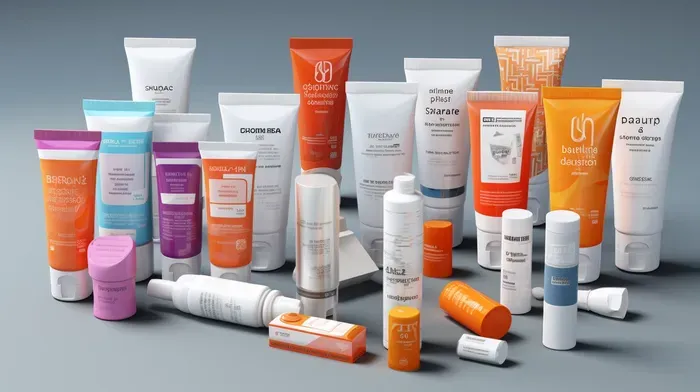Could your cosmetics be wreaking havoc on your health? Many of the products we use in our daily lives are meant to enhance our appearance and improve our environment. But it turns out that some of these products could be causing unsettling changes in our bodies, potentially leading to chronic illnesses down the line.
How Cosmetic Ingredients Can Threaten Your Health
Researchers at the University of California, Riverside, have discovered that many cosmetics and household products contain metal oxide nanoparticles (tiny, microscopic particles), which can be harmful to our health when they enter the body. If these nanoparticles are absorbed through the skin, inadvertently ingested via lipstick or toothpaste, or inhaled, they can alter the probiotic (good) bacteria in your body that support your immune system and overall health.
The study specifically examined the effects of cerium dioxide, zinc oxide, and titanium dioxide nanoparticles, which are commonly found in cosmetics, toothpaste, sunscreen, and paint. When introduced into a laboratory model of the human colon, which replicates the processes of the digestive tract and its resident bacteria, these nanoparticles were shown to disrupt the balance of the gut microbiome.
Where Nanoparticles Lurk
Here are some popular uses of these nanoparticles in everyday items:
- Zinc oxide: found in calamine lotion, sunscreens, baby powder, dandruff shampoos, athletic tape, cigarette filters, paint, and paper coatings
- Cerium dioxide: used in the walls of self-cleaning ovens
- Titanium dioxide: a common ingredient in sunscreens, skincare products, toothpaste, and tattoo ink
While the long-term effects of these additives are still being studied, it’s alarming to consider that the nanoparticles examined in this research represent just a small percentage of the total number of nanoparticles added to consumer products.
How to Avoid Harmful Ingredients
To limit your exposure to these potentially harmful chemicals, it’s essential to read the labels on the products you purchase. Look for organic cosmetics and personal care items that typically exclude these types of toxins. Several resources, such as the Environmental Working Group’s “Skin Deep” website and the Organic Consumers Association’s website, can help you identify potentially harmful ingredients and find safer alternatives.
Natural Alternatives for Safer Beauty
In addition to switching to organic products, consider incorporating some natural alternatives into your beauty routine:
- Coconut oil: This versatile oil can be used as a gentle makeup remover, moisturizer, and even a natural deodorant.
- Shea butter: A fantastic natural moisturizer, shea butter can provide lasting hydration for your skin without the worry of harmful chemicals.
- Aloe vera: Great for soothing sunburns and irritated skin, aloe vera is a must-have natural ingredient for your skincare arsenal.
- Raw honey: A natural antibacterial, raw honey can be used as a DIY face mask to help fight acne and improve your complexion.
The Future of Nanoparticles in Consumer Products
With more research underway to study the impact of nanoparticles on human health, growing concerns may prompt changes in the way these substances are used and regulated in consumer products. In the meantime, taking steps to educate yourself and choose safer alternatives can help protect your health from potential long-term damage.
The world of cosmetics and skincare is vast and ever-evolving, but staying informed and making conscious choices about the products you use can make a significant difference in your overall health and well-being. By investing in organic and natural products, you can ensure that your body remains as beautiful and healthy on the inside as it appears on the outside.



